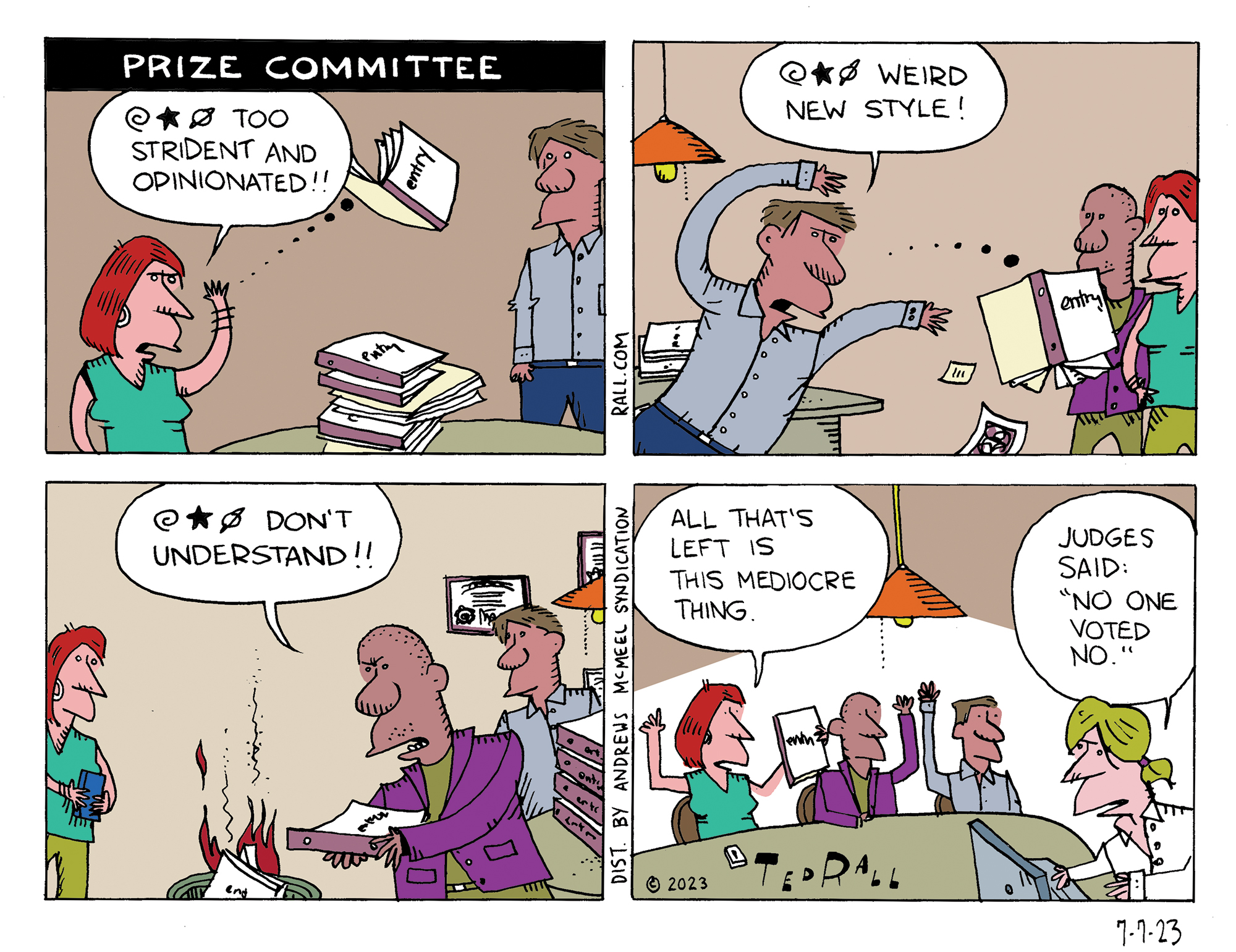Malcolm Gladwell extolled the wisdom of the crowd, but it should also be noted that assessing quality is not a job that a committee of people is capable of pulling off very well. Work that is controversial, ahead of its time, different or unique falls by the wayside. In the end, winners tend to simply be the person or entry to which no one said no.
The Prize Committee

Ted Rall
Ted Rall is a syndicated political cartoonist for Andrews McMeel Syndication and WhoWhatWhy.org and Counterpoint. He is a contributor to Centerclip and co-host of "The TMI Show" talk show. He is a graphic novelist and author of many books of art and prose, and an occasional war correspondent. He is, recently, the author of the graphic novel "2024: Revisited."

1 Comment. Leave new
Take a look at any list of award recipients. The omissions are often more telling. “The Shawshank Redemption” had seven Oscar nominations and didn’t win a thing. Ditto for “Miller’s Crossing,” “It’s a Wonderful Life,” “Rebel Without a Cause,” “American Psycho,” and so on. I don’t think Kurt Vonnegut won a major writing award in his life. Borges never won a Nobel (probably due to his politics). W. H. Auden? Nope. Tolstoy, Orwell, and Twain also got the shaft. (Although, to be fair, they did get it right by not giving that hack James Joyce an award.)
The basic defect is in the premise itself. The purpose of the prize is to sell the item. Be it a book, movie, song, whatever, the award is saying, “We think you’ll like this because our judges think it’s extraordinary.” An award that pushes a product that has limited appeal quickly finds itself relegated to irrelevance.